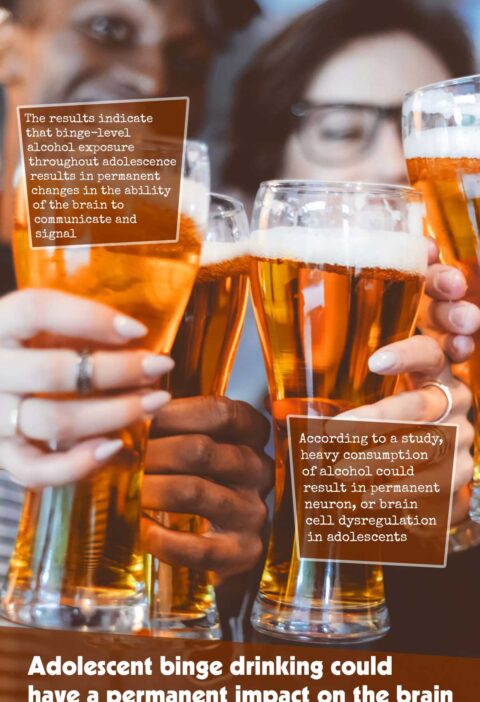Study conducted among 21,000 participants revealed that weekly alcohol consumption of seven units or more is associated with higher iron levels in the brain, an accumulation that has been associated with Parkinson’s and Alzheimer’s diseases and may contribute to cognitive decline due to alcohol consumption.
There is mounting evidence of how even moderate alcohol intake can have serious repercussions for brain health, according to researchers who studied associations between alcohol consumption and levels of iron in the brain.
Participants of the UK Biobank were asked to self-report their consumption of alcohol, with brain scans conducted using magnetic resonance imaging (MRI). Roughly 7,000 had their livers imaged by MRI to measure systemic iron levels, while all participants completed several simple tests designed to evaluate motor and cognitive function.
Average participants age was 55, and 48.6% were female. 2.7% reported non-drinking while the average consumption per week averaged 18 units – approximately six large glasses of wine or 7 1/2 cans of beer per person per week.
Researchers found that drinking more than 7 units weekly of alcohol was linked with higher iron markers in the basal ganglia – a group of brain areas associated with procedural learning, eye movement control, emotions, cognition and motor control movements – leading to higher iron accumulation rates in some brain areas and worsened cognitive performance.
Though consumption was self-reported and could be underreported, this method was seen as the only feasible means of ascertaining consumption across such a large cohort.
The study’s limitation lies in its use of indirect measures of brain iron levels; these may conflate with changes caused by alcohol consumption and could misrepresent how iron levels may have changed in the brain.
Given the widespread nature of moderate alcohol consumption, even small correlations can have substantial impacts on entire populations; interventions designed to decrease drinking could bring great benefit for everyone involved.






